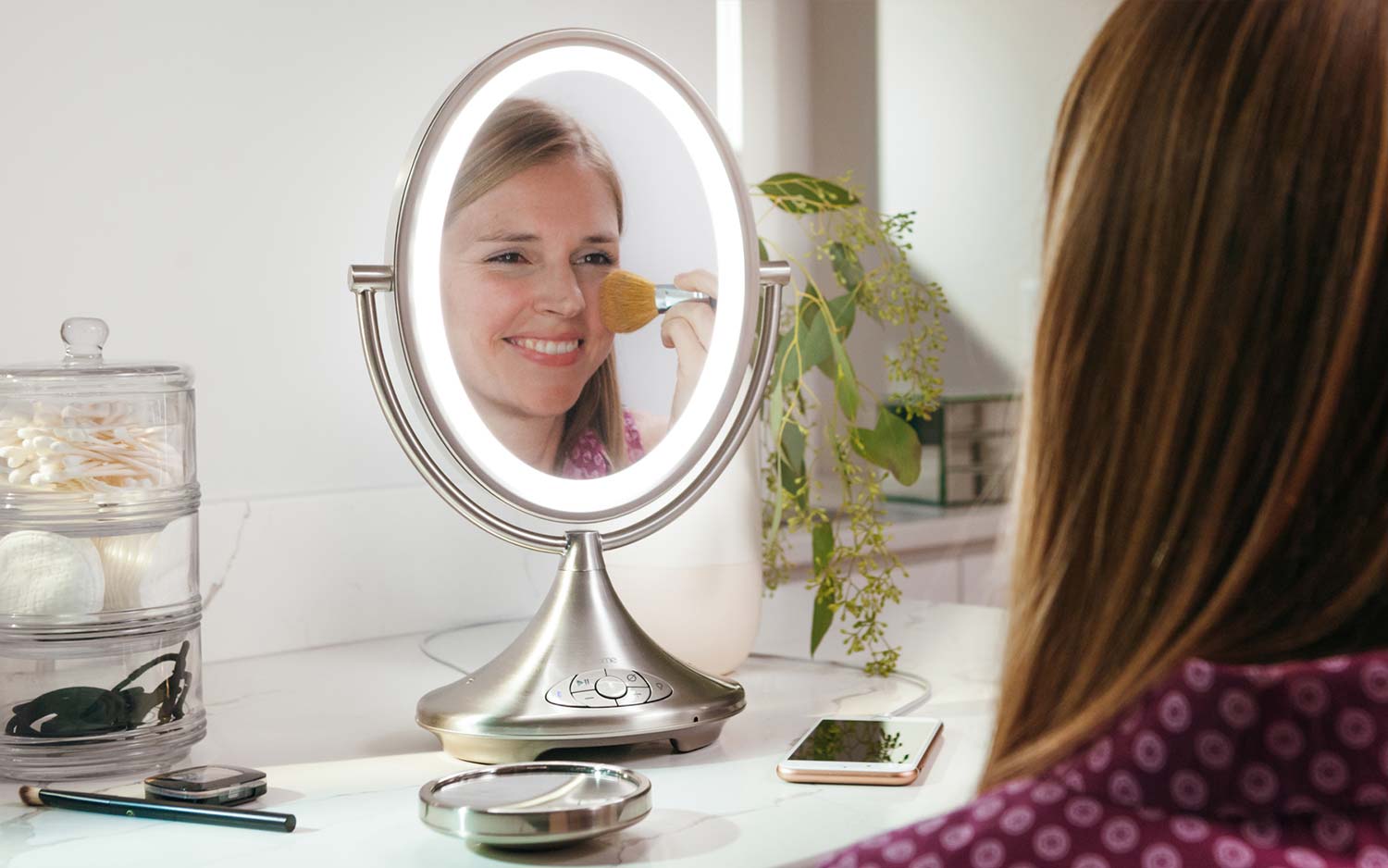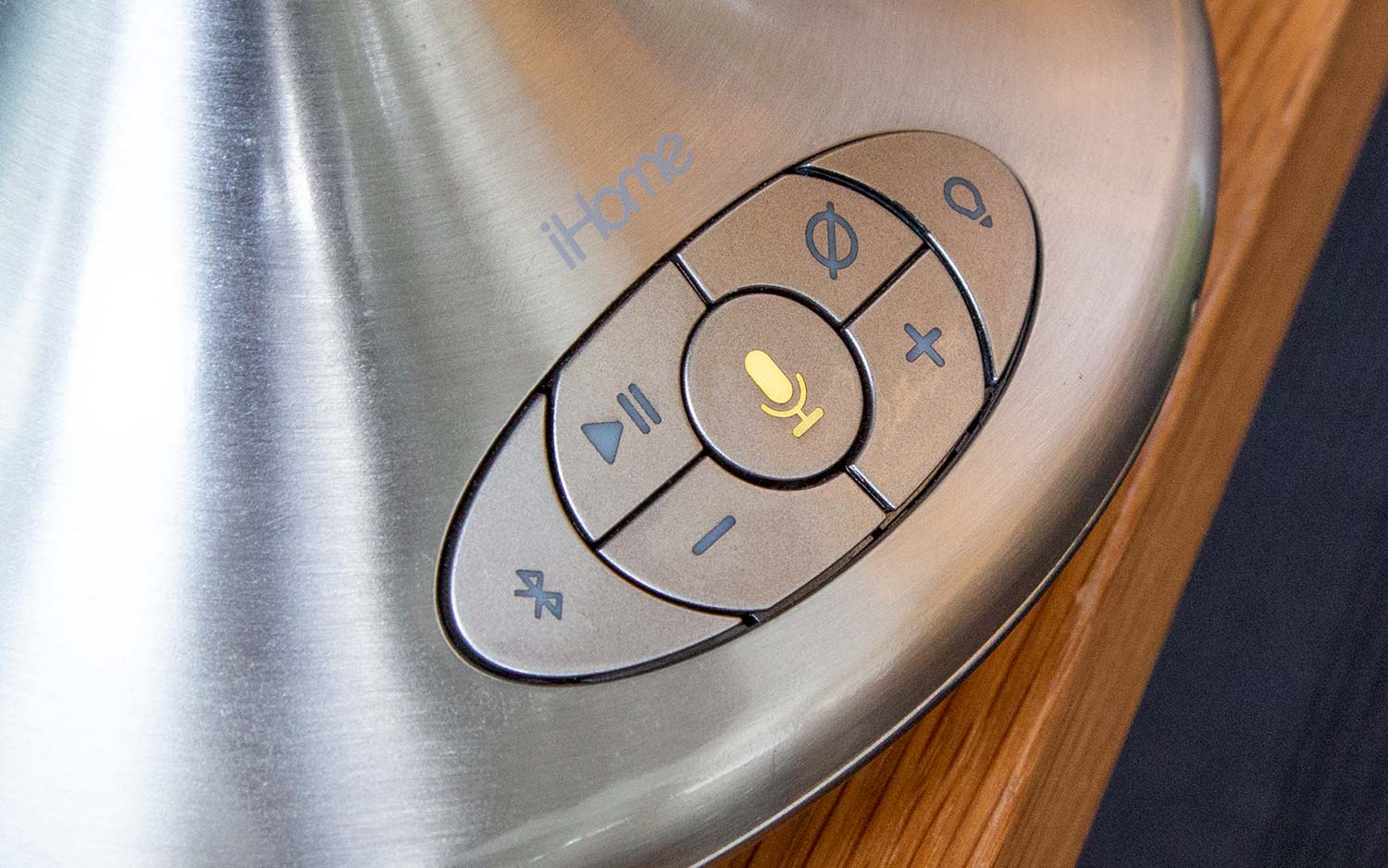Tom's Guide Verdict
A week with iHome's smart mirror convinced me that not everything needs a virtual assistant built in.
Pros
- +
A nice mirror
- +
Bright, customizable LEDs
- +
Built-in USB charging port
Cons
- -
Underwhelming audio
- -
Pricey (for a mirror)
- -
Why is Alexa in a mirror
Why you can trust Tom's Guide
It seems there's no limit to where Alexa can go. Amazon's voice assistant isn't just in speakers anymore: You can find it in a piano, a table lamp, a thermostat, glasses and countless other devices. And if you're someone like me who values their morning primp time, you may be interested in one of the more unusual voice innovations out there: iHome's iCVA66 vanity mirror with Alexa built in.
For the past few months, I've been using this $199 smart mirror for makeup and morning preparation. It's a fun, practical device. But the more I used it, the more sure I was that there's no good reason to put Alexa in a vanity mirror — or in any other household device.
As a mirror, it works
There's a lot to like about iHome's mirror. Designwise, it's a nice-looking 14.1 x 8.6 x 4.6 device that added a touch of luxury to my bathroom's otherwise plain aesthetic.

Its two sides provide 1x and 5x magnification, respectively, and each side is encircled by LEDs with three brightness settings. At its brightest, the iCVA66 didn't quite light my entire bathroom, but it was more than suitable as a night light.
It was a slightly better experience than listening to music on my iPhone 8 Plus, but inferior to an Echo Dot speaker.
It also sports a built-in wireless Bluetooth speaker, a speakerphone and a USB charging port. That's an impressive slate of features, even compared with some of the best vanity mirrors on the market. Sadly, the speaker was weak. There was almost no bass, and songs were a bit distorted at maximum volume. It was a slightly better experience than listening to music on my iPhone 8 Plus, but inferior to an Echo Dot speaker.
But what's the point of Alexa?
Perhaps while you're putting on your makeup, you also want to hear your morning flash briefing, check the weather or listen to some music. Sure, you can access all these things with your phone or a smart speaker, but with Alexa built into your mirror, you can do it all through one gadget.

I tried my best to use this mirror as intended. Instead of asking Alexa for the news while waiting for the subway, I did so while applying my makeup and styling my hair. Alexa was Alexa, and the mirror was a mirror; both worked just fine.
About a month after setting up the iCVA66, I stopped using its Alexa feature. In my head, it had seemed like a great idea to listen to the news and traffic reports while applying my mascara. But after actually trying it, I found that I got a lot less out of both activities. When focusing on my makeup, I often zoned out and missed chunks of whatever news story I was hearing. When focusing on Alexa, my makeup process was slower, and I made more mistakes.
MORE: This $1,500 Smart Mirror Is Peleton's Newest Rival
Eventually, I just ended up muting the microphone and using the mirror to play music, which I could absorb without paying attention. But I could easily have done the same with any speaker.
I don't think this is a problem unique to a vanity mirror. I can't help but think that I'd eventually have the same problem with an Alexa-enabled piano, car, toilet, laptop or other products that, unlike a smart speaker, have a primary and pragmatic function separate from Alexa.
A smart home should speed up our lives by helping us complete tasks faster and better — not by helping us do more things at the same time, but do them worse.
When Alexa lives in a speaker, it exists as a resource for you to call upon when you need it. I would argue that when Alexa lives in a device that also does something else, it exists for a different purpose: to enable, even encourage you to multitask. "Play a game while you do your makeup!" or "Update your shopping list while driving to work!" both sound like a lot of fun in theory. But the science is pretty clear that multitasking doesn't work: It just makes us worse at everything we're doing.
I am firmly pro-smart home. I love to see Alexa working with more products each year. I think a blood pressure monitor that uses Alexa to report your stats is a great idea. I love that there's a coffee maker that allows Amazon's voice assistant to brew a cappuccino. I'd love to see Alexa be able to dim the iCVA66's lights or change its focus (check out Kohler's Verdera Voice Lighted Mirror if you've got a lot of cash to spare).
MORE: Google, Google on the Wall: Meet The Capstone Smart Mirror
But it's also clear to me that we should be aiming for smarter homes, not for homes that are better at multitasking. A smart home should speed up our lives by helping us complete tasks faster and better — not by helping us do more things at the same time, but do them worse.
For tech companies, that means incorporating artificial intelligence into household objects in a way that's intuitive and useful. It doesn't mean throwing Alexa into all of our furniture and calling it a day.
Bottom Line
I think two factors make the iCVA66 an unideal situation for someone who wants Alexa in their bathroom. The first is that it's just not cost effective. iHome's mirror retails for $199, while the same model minus Alexa goes for just $129.99. Stick a budget Alexa speaker, such as the $19 Eufy Genie, on your bathroom shelf, and you're achieving the same effect as the iCVA66, with better audio, for $50 less.
But even if you are willing to shell out $200 for the all-in-one experience, and even if you like the device for its other features, I'm still not convinced that Alexa belongs in a mirror.
Monica Chin is a writer at The Verge, covering computers. Previously, she was a staff writer for Tom's Guide, where she wrote about everything from artificial intelligence to social media and the internet of things to. She had a particular focus on smart home, reviewing multiple devices. In her downtime, you can usually find her at poetry slams, attempting to exercise, or yelling at people on Twitter.

